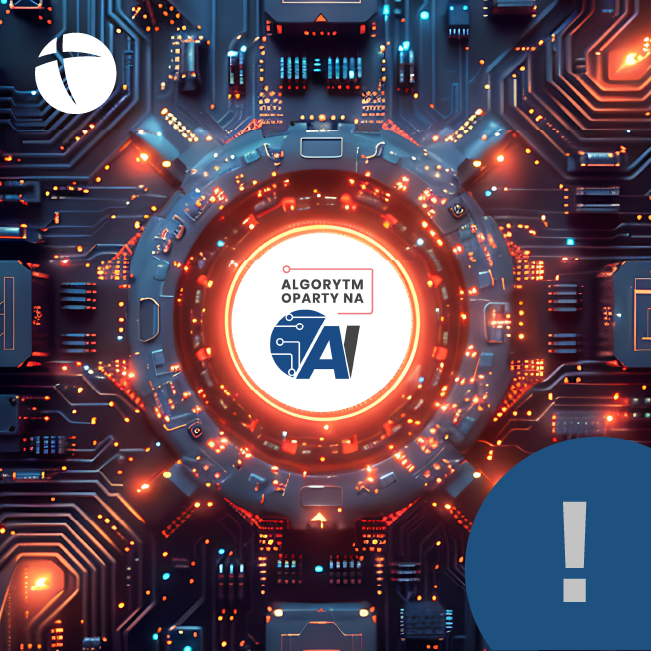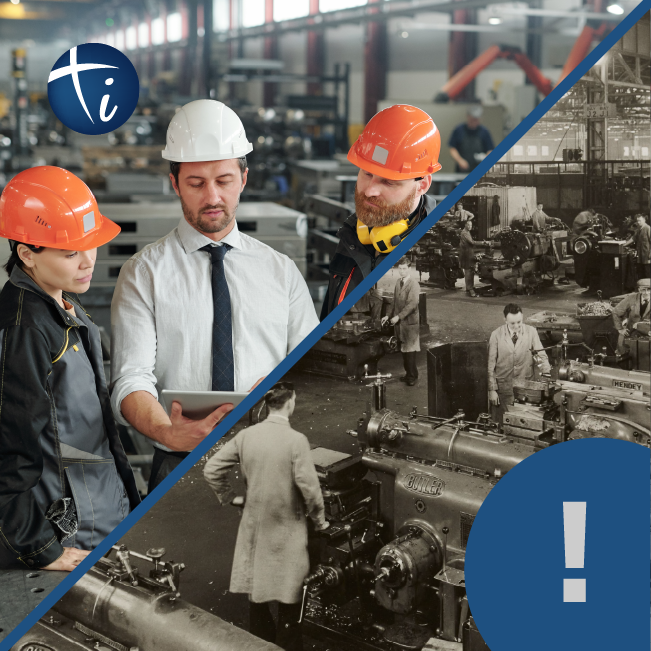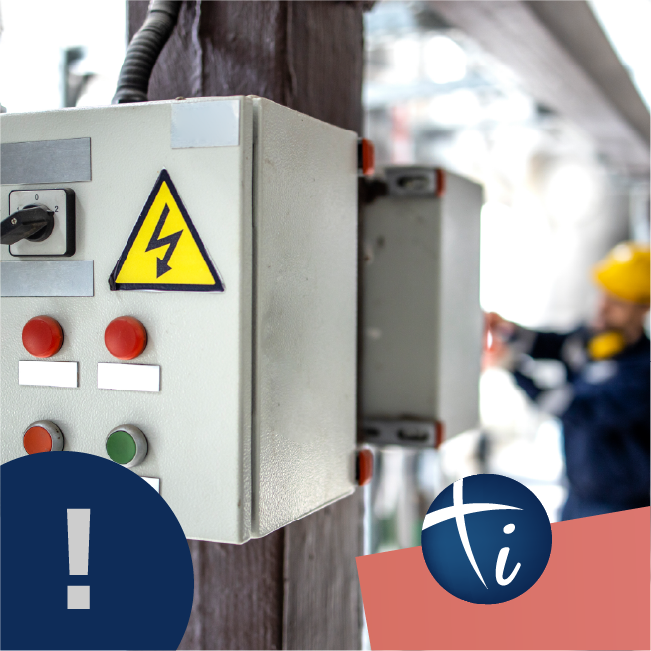Introduction
Artificial Intelligence (AI) is becoming a key element of modern production management, transforming traditional processes into more integrated and efficient operations. Thanks to advanced algorithms, AI enables automation and optimization of various aspects of production, from predictive maintenance, quality control, to supply chain management. It also supports workers by increasing their capabilities and improving working conditions, such as through the use of collaborative robots (cobots). In this article, we will look at how AI is used in practice and the benefits and challenges it brings to modern manufacturing companies.

Predictive Maintenance
Predictive maintenance is one of the most advanced applications of AI in production. By analyzing data from sensors installed on machines, AI algorithms can predict potential equipment failures. AI analyzes data such as vibrations, temperature, or component wear to identify anomalies indicating impending malfunctions. This allows maintenance to be scheduled at optimal times, minimizing downtime and repair costs.
Quality Control
AI significantly improves quality control processes by utilizing image recognition and machine learning technologies. These systems can automatically identify defects and inconsistencies in products by analyzing images or scans of products. This allows for the detection of even the smallest defects, which increases the quality of final products and reduces production waste. AI can also analyze data from the entire production process to identify sources of quality problems and prevent them in the future.
Supply Chain Optimization
AI is revolutionizing supply chain management through intelligent planning and forecasting. By analyzing vast amounts of data, AI can predict demand, manage inventory, and optimize logistics. This allows for maintaining optimal inventory levels, avoiding overstock and shortages, and quickly responding to changes in demand. AI can also automate production planning, minimizing the costs of production line changes and ensuring timely delivery of products.
Cobots
Cobots, or collaborative robots, are designed to work alongside human operators, performing repetitive and physically demanding tasks. Thanks to AI, cobots can safely collaborate with humans, assisting them in tasks such as moving heavy objects, assembly, or product inspection. This increases productivity and workplace safety, allowing human workers to focus on more complex and creative tasks. Cobots can be easily programmed and adapted to different tasks, making them versatile tools in modern production.
Introducing AI into these key areas of production brings numerous benefits, including increased efficiency, higher product quality, and better resource management, ultimately leading to a more sustainable and competitive industry.
Challenges and Issues
Data Quality and Integration Issues
One of the biggest challenges associated with implementing AI in production is data quality and integration. The effective functioning of AI algorithms depends on access to high-quality, well-integrated data. Unfortunately, many companies face issues related to incomplete, unclean, or inconsistent data. Poor data quality and weak integration between different production and IT systems can significantly limit the capabilities and efficiency of AI.
Talent and Skills Shortages in AI Implementation
Introducing AI into production processes requires specialized knowledge and skills in data analysis, machine learning, and robotics. Unfortunately, there is a shortage of adequately qualified specialists in the labor market, which poses a serious challenge for companies wishing to implement AI. To fully harness the potential of artificial intelligence, it is necessary to invest in talent development and train the existing workforce in new technologies.
Legal and Ethical Issues, Including Data Privacy and Compliance
Implementing AI in production also involves many legal and ethical issues. First and foremost, companies must ensure compliance with data privacy regulations, such as GDPR or CCPA. Protecting personal data and sensitive information is crucial to avoid breaches and loss of customer trust. Additionally, questions arise regarding liability for decisions made by AI systems, especially in the context of potential errors or failures.
AI ethics is another important aspect that must be considered. AI algorithms must be designed and implemented in a transparent and fair manner to avoid discrimination and bias. Companies must also ensure that their actions align with social and legal values, which requires ongoing monitoring and auditing of AI systems.
In summary, despite the numerous benefits that AI brings, companies must face various challenges to fully utilize the potential of this technology in a safe and responsible manner.
Summary
Artificial Intelligence (AI) significantly improves production management, increasing efficiency, product quality, and workplace safety. Through predictive maintenance, AI minimizes downtime and maintenance costs, while advanced quality control systems automatically identify product defects. AI also optimizes supply chain management and supports workers through cobots. Despite the numerous benefits, implementing AI comes with challenges such as data quality issues, talent shortages, and legal and ethical concerns. To fully leverage AI’s potential, companies must invest in talent development and infrastructure modernization.
+48 883 366 717




